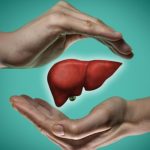6 Possible Causes of Constipation with Gastritis & 6 Tips to Treat.
Can Gastritis cause constipation?
Gastritis is not known to cause constipation. However, some studies linked the eradication of H. pylori (a stomach bug that causes gastritis) to the relief of constipation. Other possible causes of constipation with gastritis are associated constipation disorders, decreased food intake, faulty diet habits, psychological stress, and some medications.
Constipation is not a documented symptom of Gastritis. However, gastritis is commonly associated with other gastrointestinal conditions as a part of gut dysfunction.
For example, a small study found that 78.8% of patients with chronic gastritis suffer from IBS. Also, altered diet habits in patients with gastritis can contribute to constipation.
Possible causes of constipation with gastritis include:
- Decreased food intake due to stomach pain from gastritis.
- An unbalanced diet such as restricting fibers, consuming red meats, or refined grains.
- Taking gastritis medications that cause constipation such as some anti-nausea medications and proton pump inhibitors (discussed in detail below).
- Associated IBS with constipation or chronic idiopathic constipation.
- Associated with Diabetes mellitus or hypothyroidism.
- H. pylori infection.
The possible links between gastritis and constipation are:
1- Decreased food intake.
If you are a gastritis sufferer, you probably are afraid of eating. As eating triggers gastritis pain, people with gastritis tend to eat fewer amounts of food.
As a result, the frequency of bowel movements decreases. Also, the food stays longer in the colon allowing the absorption of its water content. This can make the stool harder, and produce constipation.
Caloric restriction in people with gastritis is common. Its effects on constipation are more evident in elderly people and people who didn’t obtain enough fluids.
2- Faulty diet habits.
Not only undereating can cause constipation, but also eating an unbalanced diet with gastritis can lead to more constipation.
Examples of diets and diet habits that can aggravate constipation:
- Refined grains such as refined flour, white bread, and white rice.
- Milk and dairy products
- Red meat
- Fried or fast foods.
- Alcoholoand caffeine.
- Chocolates.
3- Gastritis medications that cause constipation.
Medications are one of the most common causes of constipation. Some medications you take for gastritis can potentially cause constipation.
A large study in Mexico (involving 1,851 patients) evaluated the effects of PPIs (such as Prilosec and Nexium) on bowel symptoms. More than 92% of people receiving proton pump inhibitors suffered from some sort of bowel symptoms.
Constipation, diarrhea, and abdominal pain were common among people receiving PPIs for gastritis or GERD.
PPIs may induce bowel symptoms such as constipation or diarrhea via altering the gut micro-organisms (dysbiosis).
Also, some anti-nausea medications (such as Zofran) may induce constipation.
Other common medications that cause constipation:
- Pepto Bismol.
- Calcium channel blockers (used for the treatment of hypertension and heart diseases).
- Non-steroidal anti-inflammatory drugs such as Ibuprofen (Advil) and Naproxen (Aleve).
- Tricyclic antidepressants such as Elavil.
- Antihistamines like Zyrtec and Benadryl.
- Medications for urinary incontinence.
4- Associated diseases causing constipation.
The presence of gastritis and constipation at the same time doesn’t always mean they’re related. The co-existence of both constipation and gastritis can be due to separate causes.
Common conditions that cause constipation are:
- Irritable bowel syndrome (IBS) with predominant constipation.
- Chronic idiopathic constipation.
- Secondary constipation due to diseases of the thyroid gland, diabetes mellitus, or neurological diseases (such as Parkinson’s disease and stroke).
Constipation-predominant IBS is a common condition characterized by abdominal pain associated with defecation, change in stool form (hard stools), or stool frequency (less frequent bowel movements).
Chronic idiopathic constipation is similar to IBS-C. The difference is abdominal pain. Unline IBS-C, Patients with chronic idiopathic constipation don’t experience significant abdominal pain.
Diabetes mellitus is known for its destructive effects on the nerves. Destruction of the nerves supplying your gut can lead to chronic constipation.
Also, the conditions leading to the interactivity of the thyroid gland (hypothyroidism) can lead to constipation.
Neurological diseases such as Parkinson’s disease, previous cerebral stroke, Myogenic diseases such as myasthenia graves, and others can result in constipation.
All the above conditions are relatively common. they can co-exist with gastritis and be the cause of associated constipation. Constipation and gastritis are not often linked to the same cause.
5- Psychological stress.
Your brain and mental state are directly related to your gut. In fact, your digestive system is one of the most affected systems by stress.
High levels of psychological stress can induce various gut symptoms and diseases such as:
- Epigastric pain and gastritis (due to increased acidity).
- Irritable bowel syndrome.
- Nausea.
- Changes in bowel movements (with constipation or diarrhea).
The chronicity of psychological stress can permanently affect your gut.
Chronic psychological stress can cause both gastritis and constipation. Gastritis is a result of the increased release of stomach acid.
Stress-related constipation is due to the release of stress hormones such as Norepinephrine and Corticotropin-Releasing Factor (CRF). Both hormones slow gut motility and can cause constipation. (ref)
Also, stress can alter the levels and the types of beneficial micro-organisms living inside your intestine and colon (the microbiome).
Alternation of the gut microbiome may lead to different gut symptoms and diseases such as chronic constipation and Irritable bowel syndrome.
6- H pylori and constipation.
H. pylori is a common stomach bug that affects approximately two-thirds of the world population. it is a common cause of chronic gastritis and peptic ulcer diseases.
Learn how common is H. pylori.
Constipation is not known to be a symptom or complication of h. pylori. However, some studies found that people who have h. pylori and constipation may benefit from h. pylori treatment.
This study found that constipation in people with h. pylori gastritis was improved after h. pylori eradication. However, the study was done on a relatively small number. More studies are needed to confirm this finding.
MORE: 5 Causes of Yellow Stool with GERD.
Tips to treat gastritis and constipation:
Here, we will mention some general gut health tips that fit most people. W will not discuss specific treatments for constipation and gastritis. Both are medical conditions that require treatment by your doctor.
The below tips will help improve symptoms in most people.
1- Diet.
Diet is one of the chief causes of gut disturbances. Unbalanced diet types or amounts can lead to both gastritis and constipation.
Below, is a summary of the do’s and the do not regarding diet for gastritis and constipation.
2- Hydration.
Staying hydrated is essential to prevent and relieve constipation. Drinking at least 3 liters per day is important to prevent stool hardening.
Plain water is the best. Prune juice is the most popular juice to relieve constipation. Also, apple or pear juices can provide a gentle constipation relief effect. Learn more.
Milk and carbonated beverages are not the best options for your gastritis and constipation.
3- Physical activity.
The sedentary lifestyle and lack of regular physical activity are important risk factors for constipation.
Simply getting up and moving or having a walk can help with constipation. Try a 15-30 minutes regular daily walking plan if you’re a chronic constipation sufferer.
You can also try some aerobic exercises such as running, swimming, swing dancing, or jogging.
Being active helps other gut symptoms such as bloating, distension, abdominal pain, and even gastritis.
Learn more about exercise for constipation relief.
4- Managing your stress.
You can use classical treatments for constipation such as laxatives and stool softeners. However, these treatments don’t address the cause of your constipation (if it is stress-related).
If your constipation is related to mental health issues, stress, or anxiety, try simple stress relief mechanisms such as:
- Deep breathing exercises.
- Mindfulness meditation.
- Progressive muscle relaxation.
- Biofeedback, is a method for stress and constipation relief. the idea is to provide you with information about your muscle tension using a special device. this helps you control your muscle relaxation. a special type of biofeedback is present for control of your sphincter muscles in constipation.
Learn More about the easy stress relief mechanisms.
Learn more about biofeedback for constipation
5- Fiber foods and Supplements.
Soluble fibers retain water inside your colon and make your stool less hard. Insoluble fibers cannot be absorbed and form a bulk inside your colon that helps constipation relief.
Fiber-rich food is better than fiber supplements as they provide a variety of types (instead of one type per supplement).
Also, fiber foods provide a variety of micronutrients that is not provided by commercial supplements.
Numerous types of soluble and insoluble fibers supplements are used for constipation:
- Psyllium (Metamucil).
- Wheat dextrin.
- Calcium polycarbophil (FiberCon).
- Methylcellulose (Citrucel).
6- Probiotics.
Alternation of your gut micro-organisms is linked to many health issues including gastritis and constipation.
The balance of your gut micro-organisms is critical for your gut, mental, and overall health.
Altered gut microbiota has been suggested as one of the mechanisms of chronic constipation (functional constipation). (ref)
Some evidence is that supplementation with probiotics may help relieve constipation. (ref)
We are not sure yet about the efficacy of probiotics for constipation. However, we recommend patients with chronic constipation a trial of probiotic supplements.
Probiotics help to regain your gut microbiota balance, aid in digestion, and provide many health benefits beyond your gut. Learn more.
Also, probiotics may provide benefits in gastritis and help h. pylori eradication. (ref).
Recommended Probiotics to try for constipation and gastritis:
(Disclaimer: Some of the links below are affiliate links, clicking the below links is a form of supporting us to continue providing amazing information to you for free.)
1- Seed Daily Synbiotic (Highest quality probiotic and prebiotic).
2- Align probiotics (amazon.com).
3- Renew Life Probiotics (amazon.com).
When to see a doctor for constipation?
- Recent onset constipation.
- Unusual stomach pain.
- Presence of blood in the stool.
- You’re losing weight without trying.
- Presence of fever or vomiting.
- Failure of home remedies to relieve constipation.
Related Posts:
- 5 Causes of Diarrhea After Eating Fatty Foods & Tips…
- Impacted Stool: Treatments & Best Laxative, A…
- How to relax sphincter muscles for constipation (Dr.…
- 6 Constipation danger signs (Gastroenterologist Explains).
- Anxiety & IBS: Roots & Practical tips to…
- IBS pain relief: 8 Most Effective Tips From A Doctor…







